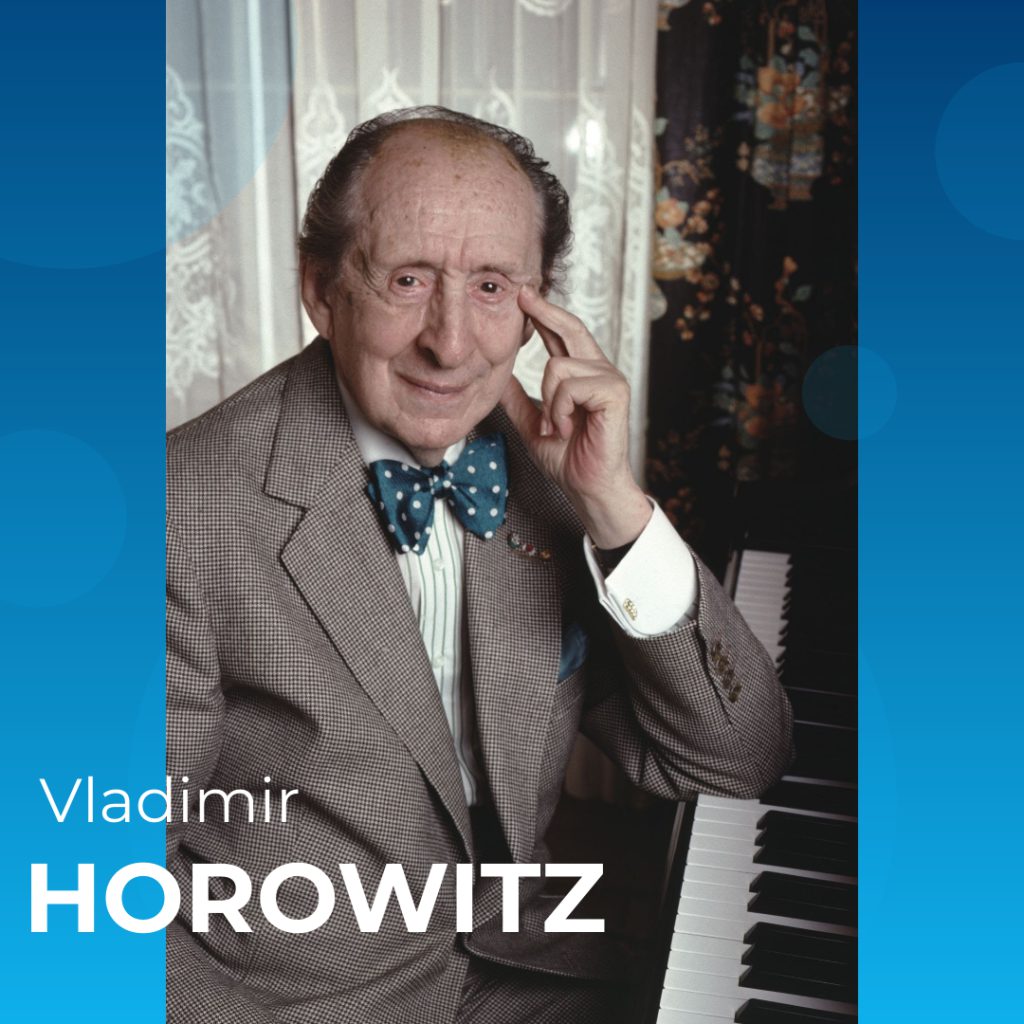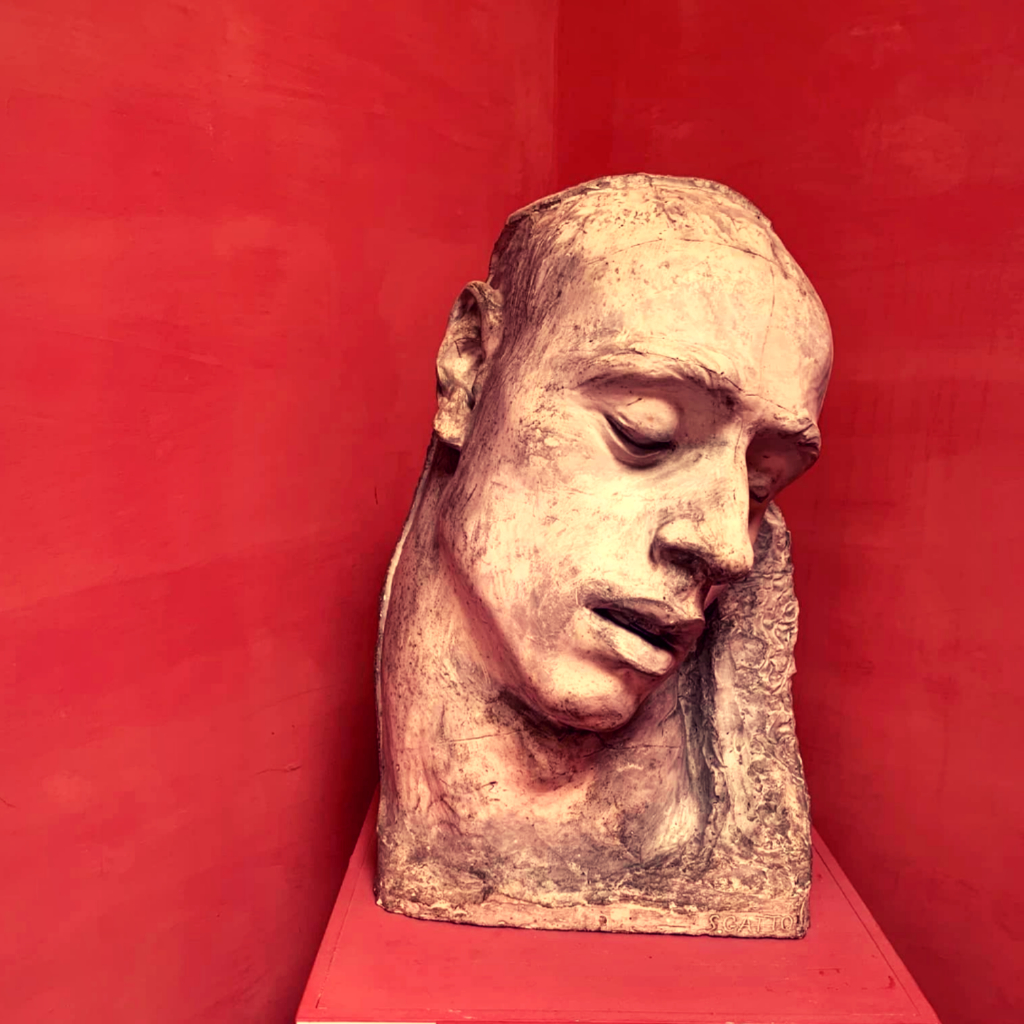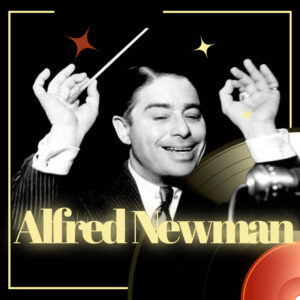
For not wanting to return with a tour to Soviet Russia, his father was killed in the gulag. He was applauded by Europe and America, but episodes of depression often forced him to say goodbye to the stage and go into seclusion. He could become the pride and glory of Russia, but entered the encyclopedia as an «American pianist».
In the Horowitz family, perhaps, only the father was far from music. Samuel Horowitz was the owner of a company dealing in rare goods – electrical equipment. Trained as an engineer, he knew what he was selling.
Vladimir Samuilovich Horowitz was born on October 1, 1903. Some sources claim that it was born in Berdichev, which to this day historians with bitterness call «Jewish Atlantis», and in the last century were not only as «Volyn Jerusalem», this small town was known throughout Europe as the center of Hasidism. Other researchers have apparently found in Jewish metric books of the city of Kiev references to the birth of both Vladimir Horowitz and his father Samuel, and uncle Alexander, and brothers and sisters. In favor of «Kiev» version says also the fact that the grandfather of the future musician Joachim Horowitz was known in Kiev merchant of the first guild, and therefore had the right to live outside of the sedentary trait.
But the most interesting thing is that in 1874 he became the director of the Kiev branch of the Imperial Russian Musical Society – apparently not without the participation of his wife, who played the piano perfectly and in 1873 even registered as a member of that society. One of their two sons, Alexander, graduated from the Kiev Music School and the Moscow Conservatory. At the Kiev Music School both mother Vladimir Horowitz and his two brothers and sister Yakov and Regina, like him, became pianists, Grigory was the only one who preferred the violin.
Vladimir entered the conservatory when he was only nine years old. He took his first steps in music with his mother, who had no idea that she was raising a future famous musician. Everyone was sure that Vladimir would become a composer or a music teacher (as happened to his siblings). The boy entered the class of Sergei Tarnovsky and Felix Bloumenfeld, sat for hours behind the instrument, and by ten years had played all of Wagner’s works.
It was as if he lacked what he had learned at the conservatory. He learned from the beginning to the end some operas of Rimsky-Korsakov and Tchaikovsky, which impressed teachers and parents. Vladimir Horowitz played virtuoso, quickly, knew all the works of favorite authors. He gradually began to compose himself, in many ways imitating his idol, Rachmaninov. Later he will even perform some of his youthful compositions several times, will record a record – and will not come back to them, as if having paid tribute to the happy childhood of Kiev and said goodbye to him forever.
In 1914, the life of a wealthy intelligent family was forever upended, with its musical evenings and beautiful sets. The coming to power of those who were nothing but very eager to become everything was a disaster for the heirs of the merchant Horowitz. At 24 o’clock, my family lost everything – said Vladimir many years later. – With my own eyes I saw them throw our piano out the window».
The Horowitz literally have nothing to live on. He had to negotiate an early graduation with the Conservatory to start earning concerts and help his family. The teachers did not object: the young man with such talent no longer needed their lessons. At the prom he played the Third Concert of Rachmaninoff, one of the most difficult works of classical music, which later became his business card. He was 17 years old.
Having received the documents on the graduation of the conservatory, Vladimir Horowitz began performing concerts. He made his debut in 1921 in Kharkiv. Despite the troubled times, death and fires raging around, the young pianist enjoyed great success. His mastery of the instrument delighted the public. For four years he concerted in cities of Soviet Russia. It was called «New Leaf», «Leaf of the XX century». It seemed that Horowitz did not just play, but as if breathing music, needing no rest. During the year in Petrograd alone he gave 23 concerts, performing more than 100 works. The audience applauded, critics puzzled, realizing that a new star had risen before their eyes – a true virtuoso that could not be found equal.
Rumors of a young pianist quickly spread throughout the country. Moscow and Petrograd were already lying at his feet, his performances were collected sold-out, and foreign musicians touring in Russia were eager to get to them. One of them, the Austrian pianist Schnabel, decided the fate of our hero. In 1923, after hearing Horowitz in Petrograd, the Austrian came to his dressing room and strongly recommended going on a European tour. Bolsheviks released a pianist from the country: then, in 1926, trips abroad were allowed to many celebrities – Yesenin, Gorky, Mayakovsky, Shalyapin. But Horowitz has got a disappointment. His first concert in the famous Berlin «Beethoven Hall» did not have a special success: the public met a tourer from Russia, whose expressive performance style was not as close to her as the detached, unemotional performance of German artists.
But Horowitz was not very upset by the cold reception. Ahead was the whole of Europe, there was nowhere to retreat. As is often the case, opportunity brought him fame. After a performance in Hamburg, rumours spread about a pianist from Russia. Back at the hotel, Horowitz barely managed to hang his jacket on the back of the chair and drink a glass of milk (this glass somehow pleases all biographers of the great musician), as the impresario of the Hamburg Philharmonic Orchestra knocked on the door of his room. Terribly excited, he confused explained that the orchestra was going to fail: his pianist had suddenly fallen ill, and the First Concert of Tchaikovsky was going to play today.
– When do I have to perform? – Horowitz seriously asked.
– 45 minutes later, the impresario answered.
Horowitz had not played the first concert of Tchaikovsky for a couple of months, but there was no time to remember the work. The conductor Eugene Pabst, having shaken the piano’s hand, told: «Just follow my wand!» – even without asking the name of the musician. But he had to follow. After the first chords, Horowitz gained the attention of the audience, and the conductor simply helped the orchestra follow the unique soloist. It was an incredible success. The success that the newspapers called the «unheard since Caruso’s tour». The room literally exploded when the last chords came up.
«When it was all over and the piano lay on the stage like a dead dragon, all in the hall as one person, jumped from the seats, hysterically screaming», this is how one of the critics described the reaction of the audience. Many of them rushed out to get tickets to Horowitz’s recital. About 3,000 tickets sold out in an hour and a half. Shocked by Pabst, they say the excitement squeezed the piano’s shoulder so tightly that it hurt for a few more days.
Sometimes, however, is an artist with a genius of interpretation – Liszt, Rubinstein, Paderewski, Kreisler, Casals, Corto… Vladimir Horowitz belongs to this category of artist-kings», wrote by French journalists after his debut in Paris. His tour of Europe became a sensation. To cleanse the Grand Opera of the piano fans who never wanted to separate, we had to call the gendarmes. He was greeted with equal enthusiasm in London, Vienna and other European capitals. In January 1928, Horowitz went to America.
By that time, he knew that he could not go back to Russia. The Soviet consul in Paris demanded that he return immediately to his homeland. But Horowitz took his time, hoping that there would be a chance to delay the return as long as possible. He was invited to the United States. The tours clearly turned into an escape: the Bolsheviks threatened, the mother died, the father was arrested – he only had time to see his son again in Paris, where he probably came to persuade him to return. Arriving from France, Samuel Horowitz was immediately in the gulag.
Her brother’s resounding success did not bring Regina happiness either – she was a modest music teacher at the Kharkiv Conservatory until the end of her life, although Horowitz himself often said that she played better than him. All this broke his heart, but it was no longer possible to save his family, and returning to Russia meant certain death. He had to make a decision – perhaps the toughest one a man could have. And he accepted it: he gave up forever the hope of ever returning to his homeland. The decision will be a permanent pain for the pianist, which will poison the joy of musical victories. Although the victories were not easy.
After hearing about the Hamburg triumph of Vladimir Horowitz, the American Impressario demanded that the tour of the States he began with the First Concert of Tchaikovsky. The pianist seemed to have nothing to worry about: the audience still applauded him. But his partner at the premiere was the wayward Sir Thomas Beecham, a British rich man who was whispered about as if he had simply bought the glory of a conductor. Beecham clearly heard of Horowitz’s emotional playing style and began deliberately slowing the pace of the work. The pianist quickly realised that he would not be able to show a tenth of his abilities in this performance and, despite the conductor, began to increase the tempo. Critics later wrote that to the finale of the performance «the keys smoked». During the intermission the audience applauded standing, no one parted.
The next day in «New York Times» Horowitz’s game was compared to the unbridled crowd of savages, heated by a drum. The musician felt like a winner.
The witness of this triumph was his idol – Sergey Rachmaninov, who was shocked by the play of a pianist. The composer knew that Horowitz was going to play his Third Concerto, and offered to rehearse together. They rehearsed in the basement of the company «Steinway»: Rachmaninov played the orchestral part, Horowitz died of delight.
Rachmaninov soon realized that his works could not be played even by him.
“Rachmaninov gave this concert to me. He always said, Horowitz plays it better than I do. According to him, he composed a concert for elephants, so I guess I am one of them!”
Rachmaninoff never performed his Third Concerto again. Many years later, he found himself back in the hall where Horowitz played this most favorite piece of his work. To avoid drawing attention to himself, the composer sat modestly in the back row, but in the final he couldn’t stand, jumped from his seat and went across the hall to the stage to shake the hand of a great pianist.
Virtuoso from Soviet Russia – beautiful, bright, impulsive (many said that Horowitz was very similar to Chopin) – was enthusiastically welcomed in America. He was received in the houses of renowned aristocrats, and the illustrious conductor Toscanini married his daughter Wanda. The grandson of the Kiev merchant lived as an English count: bought works of great artists, ordered himself a unique piano. The best magazines in the world wrote about him, and his portraits were everywhere. But the sadness ate away at the heart of the pianist. He soon became saddened by the heightened attention of the public. He felt that Americans were unable to understand what he could tell them.
In 1936, Vladimir Horowitz suddenly canceled all concerts and became depressed for a long time. Neither Wanda’s loving wife nor his friends and fans can reach him. The only way to get the musician out of his depressed state is to have his controlling father-in-law: they say it was Toscanini who brought the virtuoso back to the stage. During a creative break, Horowitz suddenly realized that those who criticized him for being too emotional, unstructured, sharp, were somehow right. When he returned, he began to play in a different way. Critics wrote that Horowitz had grown up after a long absence.
When war broke out in Europe, Vladimir Horowitz plays tirelessly and sends all the money to fight fascism. In 1944, he was finally granted American citizenship. He worked very hard, learning more and more works. And he gets depressed again.
By then, Toscanini had already died, and Horowitz had no one to bring back to life. He announces that he will not perform again, and locks himself at home. CBS manages to persuade the pianist to record the album, the Scarlatti and Cherny sonatas, which were usually taught as training exercises. His house was equipped with a mini-studio: the pianist refused to communicate with people and to go out without much need. The walls of this studio were the only listeners to the great Horowitz for twelve long years.
«He came back!» – with such headlines of the newspaper in 1965, when the spokesman of Horowitz announced that the pianist would come on the stage again. Carnegie Hall was waiting for him. People waited 24 hours in line for tickets: during these long years of silence, he was not forgotten.
However, Vladimir Horowitz only looks calm and confident. Now he’s playing like he’s completely isolated from the public, like he wants to hide from her, so he can finally be heard, so that the music comes first, not his person. After that, he goes away again for five years – hiding from fans, recording records in complete solitude.
When he returned again, he was almost 70. Physical weakness did not seem to affect his performance. Then, in his last creative period, he came to Russia for the first time in many years, where he was greeted with delight as «his». Here almost all horrors of Bolshevik rule, the beginning of which was caught by Horowitz, have already ended. But he still had no desire to stay: it was difficult to forgive the homeland of the murdered father, destroyed the lives of those close to him.
For the last ten years of his life he played all the time. He visited Russia twice, went to Japan, again along and across Europe. Horowitz recorded his last album a few days before his death. He died on 5 November 1989. The last residence of the musician was the family crypt of Toscanini in Milan. Almost 70-year-long musical marathon of the great Horowitz, which could become the pride and glory of Russia, but about which «American pianist» writes in encyclopedias has finished.



